



























Airlines, Airports and Airliners News 22 to 28 Feb 2021

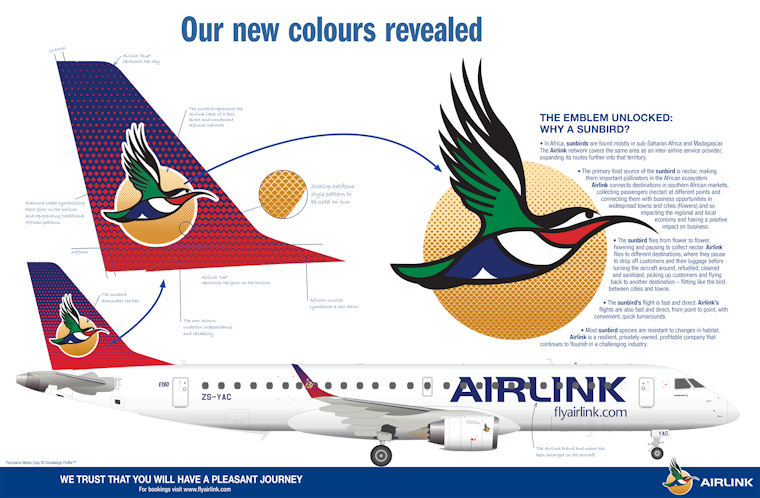
Click on image to enlarge
RWANDAIR TO BE THE FIRST AFRICAN AIRLINE TO TRIAL IATA TRAVEL PASS

IATA Travel Pass is a digital platform to help passengers easily and securely verify that they comply with COVID 19 test or vaccine travel requirements, in turn giving governments the confidence to reopen borders.
Developed by the International Air Transport Association (IATA), the trade association for the world's airlines, the platform is designed to be incorporated into airlines' own apps, so travellers by air easily understand what they need before they fly.
Yvonne Manzi Makolo, CEO of RwandAir, said: "RwandAir is proud to be the first African airline to trial IATA Travel Pass, which could reinforce all the health and safety measures and protocols which we have put in place to restore customer confidence to fly once more. We are incredibly proud to be part of IATA's Industry Advisory Panel, to ensure we guide the technology development in a way that covers the unique requirements of our passenger profile.
"IATA's innovative solution simplifies and digitally transmits the information required by countries and governments around the world into our airline systems, in a secure and efficient manner.
"Travel Pass will make it easy for our customers to resume flying - and just as easy for RwandAir, and airlines around the world, to accept them.
Alexandre de Juniac, IATA Director General and CEO, said: "RwandAir is showing its industry leadership in Africa by becoming the first airline on the continent to trial IATA Travel Pass. RwandAir has long used IATA products as the most reliable source of information on entry requirements. This trial will build on that history of working in partnership and takes us a step further in the context of COVID-19. IATA Travel Pass will give governments the confidence to re-open their borders knowing that arriving passengers are in full compliance with any testing or vaccination requirements."
The trial app has a range of features, including a registry of testing centres and labs at the departure and/or arrival location which can conduct COVID-19 tests in accordance with the type of test required for the journey."
RwandAir customers participating in the trial will create a 'digital passport' which verifies that their pre-travel COVID-19 test or vaccination meets the requirements of the destination they are travelling to.
They will also be able to safely and securely share their test and vaccination certificates with participating authorities and airlines around the world to ensure smooth and seamless travel.
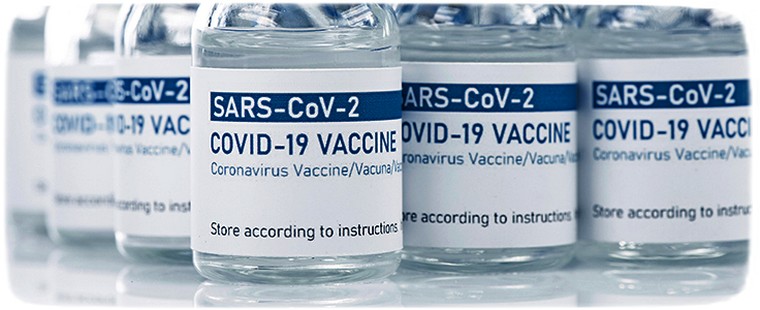
ICAO and the World Customs Organization (WCO) have published a joint statement calling on governments to demonstrate maximum flexibility with respect to border clearance and air transport supply chain operations essential to the effective distribution of COVID-19 vaccines and related medical supplies.
In a separate but related development, the two agencies have also developed new guidelines to help countries achieve better alignment of their customs and security procedures.
Signed by ICAO Secretary General Dr. Fang Liu and WCO Secretary General Dr. Kunio Mikuriya, the joint statement on vaccines urges the rapid establishment of the infrastructure needed to support end-to-end vaccine storage and logistics for public supplies.
Improved open collaboration between the aviation and customs communities and partnering organizations is also strongly emphasized.
ICAO and the WCO are furthermore encouraging countries to designate required aviation staff as 'key workers' providing an essential service, in alignment with the WHO's Roadmap for Prioritizing Uses of COVID-19 Vaccines.
"ICAO continues to work very closely with regional and international organizations, and industry partners such as the International Air Transport Association (IATA) and Airports Council International (ACI), to provide up-to-date guidance to government aviation authorities, airlines, and airports," Dr. Liu emphasized.
"To better expedite air cargo operations, and distribution of the COVID-19 vaccines, governments are being urged to bring these matters to the immediate attention of their national health and transport authorities, customs authorities, local governments, and any other concerned parties."
The new Joint WCO-ICAO Guiding Principles for Pre-Loading Advance Cargo Information will meanwhile build on earlier progress achieved by ICAO and WCO on another important risk management approach, one focused on the pre-loading of advance cargo information and designed exclusively to prevent explosives from being placed in air cargo shipments.
"Since the 2010 incident where air cargo was attempted to be used as a delivery mechanism for explosive devices, the WCO and ICAO have been partnering to secure and protect the air cargo and mail supply chain, in addition to other objectives relating to the unfettered movement of people, goods, and conveyances across international borders," Dr. Liu noted.

Boeing [NYSE: BA] anticipates airlines in Southeast Asia will need 4,400 new airplanes valued at $700 billion to support expanding demand for air travel over the next 20 years. The intra-Southeast Asian market will become the fifth largest in the world by 2039 and the vast domestic and regional air-travel network across the region positions it well for a post-pandemic recovery, according to Boeing's 2020 Commercial Market Outlook (CMO).
With low-cost carriers providing affordable service and added capacity, the CMO projects passenger traffic growth in Southeast Asia to grow by 5.7% annually throughout the forecast period. Through the period, Southeast Asia will become the second largest aviation market in the Asia-Pacific region after China.
Boeing projects the region's commercial airplane fleet will grow 5.3% annually over the next 20 years. In addition, demand for aftermarket commercial services - valued at $790 billion - will help maintain the fleet over the same period.
"Southeast Asia's fundamental growth drivers remain robust. With an expanding middle-class and growth in private consumption, the region's economy has grown by nearly 70% over the last decade, which increases propensity to travel," said Darren Hulst, Boeing vice president of Commercial Marketing. "In addition, governments in the region continue to recognize the travel and tourism sectors as important drivers of economic growth."
While near-term airplane deliveries are impacted as a result of the pandemic's effects, Boeing estimates operators will need more than 3,500 new single-aisle airplanes in the region by 2039. Single-aisle airplanes like the 737 family will continue to drive capacity growth in Southeast Asia, where low-cost-carriers have the highest market penetration globally.
Twin-aisle airplanes such as the 777X and 787 Dreamliner will remain foundational to Southeast Asia's air travel industry. Over the next 20 years, nearly one in four twin-aisle airplanes delivered to the broader Asia-Pacific region will go to a carrier operating in Southeast Asia.
Overall, Boeing forecasts regional demand for 760 new widebodies by 2039, enabling efficient replacement and versatile network growth for Southeast Asia's airlines. While long-haul market recovery is expected to take longer, Southeast Asia's twin-aisle fleet is slated to grow by 55% - to 780 widebodies - by 2039.
The region's commercial aviation services growth remains promising in the long term. Southeast Asia commercial services are valued at $790 billion over the next 20 years, a slight increase from last year's projection, driven largely by growth in freighter conversions and digital solutions and analytics. The region is expected to require 183,000 more commercial pilots, cabin crew members and aviation technicians over the forecast period.
Globally, Boeing projects the need for 43,110 new commercial airplanes and the demand for aftermarket services to be equivalent to $9 trillion over the next two decades. World air cargo traffic is projected to grow 4% annually due to solid industrial production and world trade. Freighters will remain the backbone of the cargo industry with the need for 930 new and 1,500 converted freighters during the same span.
THE COALITION FOR THE ENERGY OF THE FUTURE UNVEILS ITS FIRST SEVEN CONCRETE ACTIONS AND WELCOMES THREE NEW MEMBERS
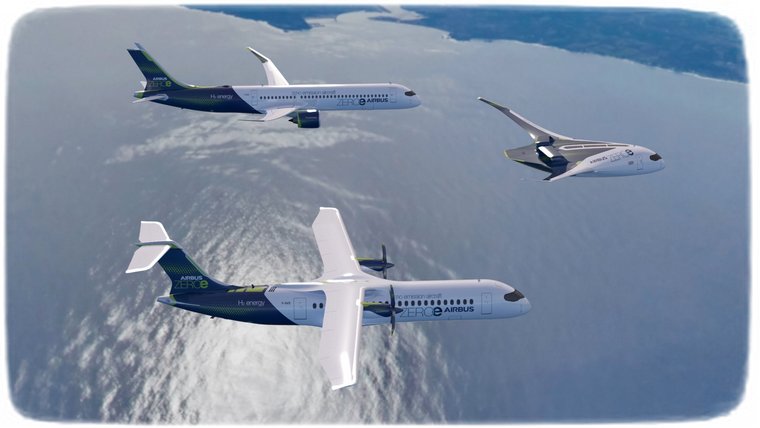
Launched in late 2019, the Coalition for the Energy of the Future aims at accelerating the development of future energies and technologies to sustain new green mobility models and reduce the impact of transport and logistics on climate change seven projects have already been developed with the first milestones to be reached as early as 2021.
"Airbus has a leading role to play in the ambition for sustainable aviation, says Jean-Brice Dumont, Executive Vice President Engineering, Airbus. "We are convinced of the benefits that joint initiatives can bring in finding innovative solutions to reduce the C02 emissions of our industry -- because we know this challenge requires a collective effort. We believe this coalition will foster the development of creative projects with effective results that will pioneer new mobility models across the sector."
According to Matthieu de Tugny, President of Bureau Veritas Marine and Offshore, "Innovative projects and joint development programs will be certainly vital to make sure we are ready for the future. The different stakeholders and experience of this Coalition certainly brings real power across the shipping sector & supply chains to develop the innovative solutions we need. It is a collective approach and all our efforts definitely need to be connected to sustain new green transportation models."
Mr TAN Chong Meng CEO, PSA International, declares: "PSA is proud to be a part of the Coalition, which is in line with our mission to enable greener logistics choices for all by working with like-minded partners. We are excited to support the development of future energies and technologies, and to do our part to collectively create a more sustainable future for transport and trade."
With these additional members, the Coalition continues to rally major industry leaders from different sectors and pursues its ambition to accelerate the development of energies and technologies sustaining new, lower-carbon models to reach carbon-neutral objectives in transport and logistics.
To achieve genuine technological breakthroughs with tangible results by 2030, the Coalition's three main goals are:
To unlock a more extensive portfolio of clean energy sources; to decrease the energy consumption per kilometre-equivalent of goods mobility and to reduce the proportion of emissions linked to transport and logistics.
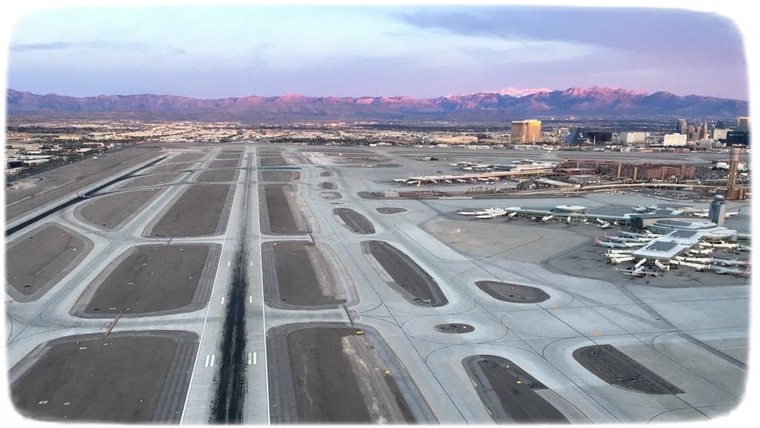
During a year disrupted by the COVID-19 pandemic, which caused a historic decline in air travel, McCarran International Airport served 22.2 million passengers. This was the airport's first year-over-year decline in passengers since 2010.
"Our community, as well as the aviation industry, has never experienced a crisis quite like COVID-19 and I am so proud of our dedicated employees who stepped up during this time," said Rosemary Vassiliadis, Clark County Director of Aviation. "As a provider of essential transportation, LAS stayed open for those needing to fly and to help facilitate the shipment and delivery of vital cargo, such as critical PPE for our community. We remain committed to doubling down on our efforts to ensure the airport is a safe and healthy environment for those choosing to travel as we begin our comeback in 2021. I have confidence that the vaccine will be a stimulus to air travel."
Increased year-over-year volume in January and February indicated 2020 was on pace to surpass the record total of 51.5 million passengers set in 2019. Passenger volume dropped in March as statewide closures went into effect in an effort to slow the spread of the virus. McCarran reached the nadir of passenger volume in April, when just 152,716 travelled through the airport. But in the following months, there was a steady rise in domestic leisure travel coinciding with the reopening of many Strip resort-casino properties.
"We know that there is pent-up demand for this destination, and the airport will be at the forefront of the Las Vegas recovery effort," Vassiliadis said.
Airlines temporarily ceased international operations at McCarran due to a combination of severe international travel restrictions and a lack of demand as many chose not to fly. These large-scale suspensions resulted in a 79.5 percent year-over-year decline in international travel from 2019. As the year progressed, some North American international service returned.
While many of the challenges of the past year continue into 2021, there is hope that conventions, along with the business travel they bring, will soon return, as well as live entertainment and sporting events as more vaccines are administered. Robust international and business travel are keys to restoring pre-pandemic passenger volumes.
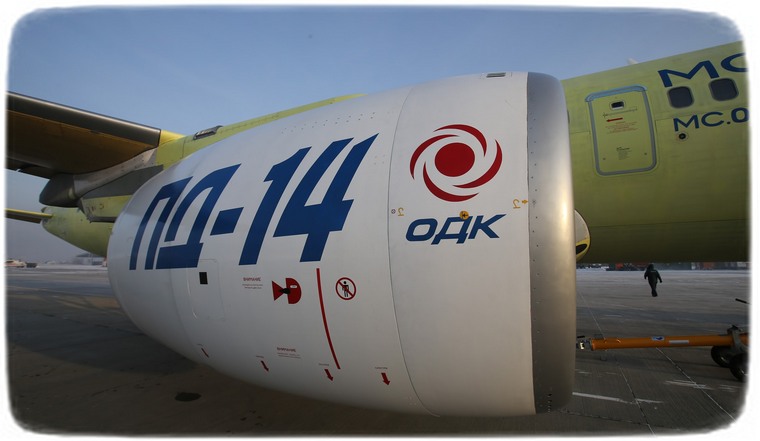
The certificate of production organization approval provides the right for serial production of PD-14 aircraft propulsion engines and their supply to customers for installation on MS-21 airliner. The document, granted by the Federal Air Transport Agency (Rosaviatsiya), was issued to UEC-Perm Engines (United Engine Corporation, part of Rostec).
The certification process was organized in two stages. At the first stage, a commission of Rosaviatsiya and Aviation Register representatives analysed the quality management system (QMS) for compliance with the requirements of the Federal Aviation regulations. At the second stage, experts evaluated the technological processes of manufacturing, assembling and testing aircraft engines.
"PD-14 has become the forefather of a whole family of domestic engines which integrate modern technologies and materials. The certificate allows to launch the serial production of these engines. In 2021, we plan to produce several new PD-14s, which will be used as a reserve during flight tests of the new MS-21-310 airliner," said the Aviation Cluster Industrial Director of Rostec Anatoly Serdyukov.
The production certification process also included qualification testing of one of the new PD-14 engines, which confirmed the compliance of its technical characteristics with the design documentation.
PD-14 is the first turbofan engine created in the modern Russian Federation. Its design was built upon time-tested design solutions using modern technologies and domestic materials. The operating costs of PD-14 are anticipated to be 14-17% lower than that of similar existing engines and lifecycle cost will be 15-20% lower.
AIRBUS REPORTS FULL-YEAR (FY) 2020 RESULTS
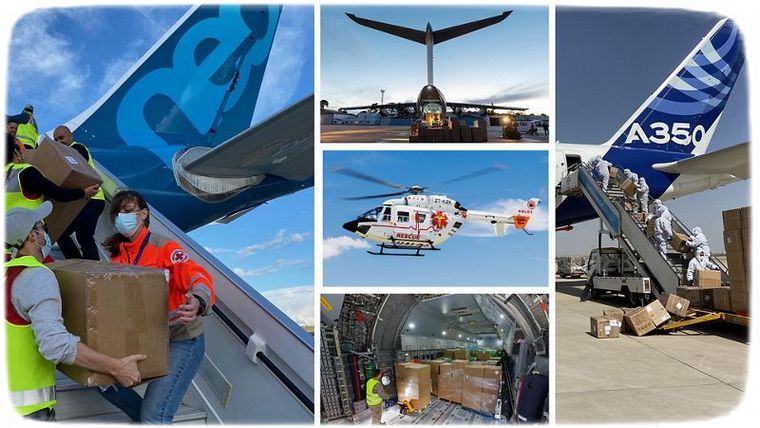
"The 2020 results demonstrate the resilience of Airbus in the most challenging crisis to hit the aerospace industry. I want to thank our teams for their great achievements in 2020 and acknowledge the strong support of our Helicopters and Defence and Space businesses. I would also like to thank our customers, suppliers and partners for their loyalty to Airbus," said Airbus Chief Executive Officer Guillaume Faury. "Many uncertainties remain for our industry in 2021 as the pandemic continues to impact lives, economies and societies. We have issued guidance to provide some visibility in a volatile environment. Over the longer term, our ambition is to lead the development of a sustainable global aerospace industry."
Net commercial aircraft orders totalled 268 (2019: 768 aircraft) with the order backlog comprising 7,184 commercial aircraft as of 31 December 2020. Airbus Helicopters booked 268 net orders (2019: 310 units), including 31 NH90s for the German Bundeswehr in Q4 and 11 H160s. Airbus Defence and Space's order intake by value increased 39% year-on-year to € 11.9 billion, a book-to-bill above one, mainly driven by major contract wins in military aircraft. This included a contract signed in November to deliver 38 new Eurofighters for the German Air Force.
Consolidated order intake by value decreased to € 33.3 billion (2019: € 81.2 billion) with the consolidated order book valued at € 373 billion on 31 December 2020 (year-end 2019: € 471 billion). The decrease in the value of the commercial aircraft backlog reflects the higher number of deliveries compared to order intake, the weakening of the US dollar and an assessment of the backlog's recoverability.
Consolidated revenues decreased to € 49.9 billion (2019: € 70.5 billion), driven by the difficult market environment impacting the commercial aircraft business with 34% fewer deliveries year-on-year. A total of 566 commercial aircraft were delivered (2019: 863 aircraft), comprising 38 A220s, 446 A320 Family, 19 A330s, 59 A350s and 4 A380s. During the fourth quarter of 2020, a total of 225 commercial aircraft were delivered including 89 in December. In 2020, Airbus Helicopters delivered 300 units (2019: 332 units) with revenues increasing by around 4%, benefiting from a favourable product mix and growth in services. Revenues at Airbus Defence and Space decreased by around 4%, mainly reflecting lower volume as well as the impact of COVID-19 on business phasing, mainly in Space Systems.
Consolidated EBIT Adjusted - an alternative performance measure and key indicator capturing the underlying business margin by excluding material charges or profits caused by movements in provisions related to programmes, restructuring or foreign exchange impacts as well as capital gains/losses from the disposal and acquisition of businesses - totalled € 1,706 million (2019: € 6,946 million). This mainly reflects the weaker commercial aircraft performance, which was supported by a strong contribution from Airbus Helicopters and Airbus Defence and Space.
AIRBALTIC AND LUFTHANSA ANNOUNCE CODESHARE AGREEMENT
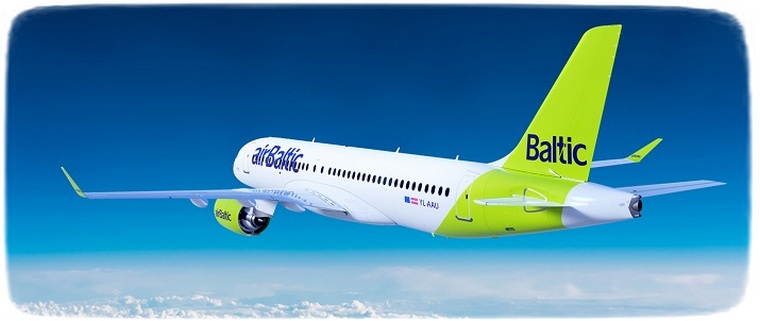
Lufthansa and airBaltic are starting codeshare cooperation that will open new, seamless travel opportunities. As of March 28, Lufthansa will put its marketing codes on routes operated by airBaltic between Munich and Riga, Latvia as well as Munich and Vilnius, Lithuania. airBaltic customers will benefit from convenient access to Lufthansa's worldwide network. At the same time, Lufthansa passengers will have more possibilities to travel from Munich to the Baltic states.
Martin Gauss, President and CEO of airBaltic: "Lufthansa is a strong connectivity provider globally, and we are pleased to strengthen our partnership and the air traffic ties between the Baltics, Germany and beyond. Germany is one of airBaltic's key markets and we are looking forward to the partnership and through that offering better travel opportunities to the passengers around the world."
Heiko Heidusch, Head of Airline Partnerships Lufthansa Group: "We are pleased to start this new cooperation with airBaltic and to further strengthen our network in the Baltic states, which is a strong market for both business and leisure customers. In airBaltic we have found a very reliable partner and together we can offer more possibilities to travel to the Baltic states via Munich."
airBaltic performs all of its flights with the most modern and environmentally friendly Airbus A220-300 jets, offering affordable and flexible Economy class tickets as well as a full Business class service.
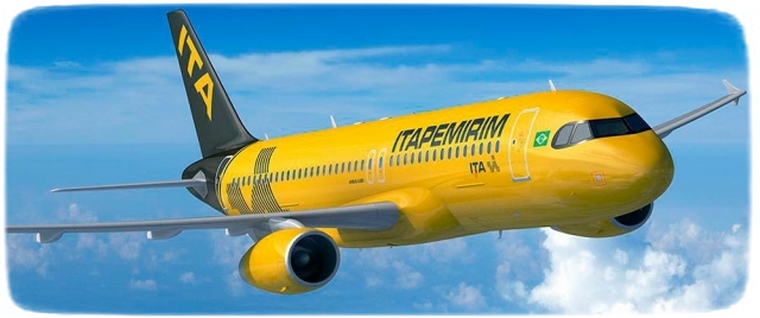
Brazilian start-up Itapemirim, or ITA Transportes Aéreos, has taken delivery of its first aircraft. The A320, PS-SPJ (2589) arrived at Natal on 20 February. It still featured the livery of Vueling where it previously flew as EC-LQK. In the coming days it will be ferried to Sao Jose dos Campos for outfitting and painting in the bright yellow livery of the new airline.
The airline is planning to fly up to nine A320s with more aircraft due from next month onwards. ITA hopes to launch commercial flights from March and is initially going to serve Brasilia, Belo Horizonte, Sao Paulo and Vitoria Goiabeiras. The home base of the start-up will be Sao Paulo-Guarulhos.
According to an interview given by the airline's CEO, Itapemirim is also planning to move into the cargo-flying business by adding up to five "large freighters" in the second half of this year.
Itapemirim is not a stranger in the aviation world of Brazil. The bus company ventured in the airline business before with a cargo airline flying B727s between 1990 and 2000, as well as a passenger airline flying Cessna 208s between 1996 and 1998. The cargo airline was discontinued and the passenger-division sold to TAM.
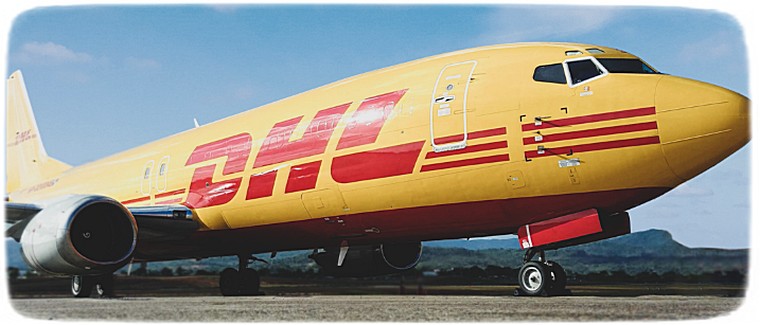
Mesa Air Group, Inc. (NASDAQ: MESA) today announced it signed a letter of intent to lease an additional Boeing 737-400F cargo aircraft currently planned to be available in May 2021. The company currently operates two 737-400F aircraft for DHL.
"This 737-400F will be a great addition to the cargo fleet. The investment in a third 737 aircraft demonstrates our focus on cargo operations and our commitment to DHL," said Brad Rich, Chief Operating Officer. "This aircraft will provide Mesa pilots with additional career advancement opportunities and provide flexibility to better meet the demands of the current cargo environment."
Headquartered in Phoenix, Arizona, Mesa Air Group, Inc. is the holding company of Mesa Airlines, a regional air carrier providing scheduled passenger service to 114 cities in 39 states, the District of Columbia, the Bahamas, Canada and Mexico as well as cargo services out of Cincinnati/Northern Kentucky International Airport. As of January 31st, 2021, Mesa operated approximately 393 daily departures. Mesa operates all of its flights as either American Eagle, United Express, or DHL Express flights pursuant to the terms of capacity purchase agreements entered into with American Airlines, Inc., United Airlines, Inc., and DHL.
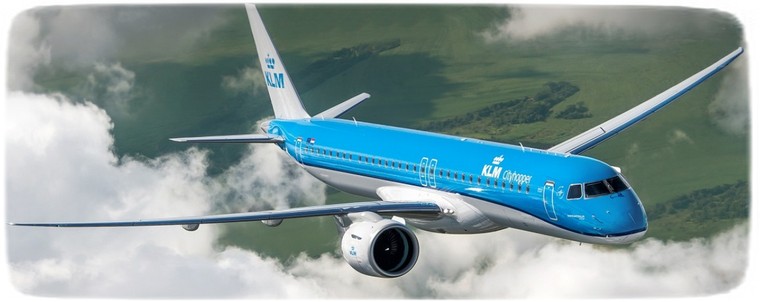
KLM Cityhopper, the regional subsidiary of KLM Royal Dutch Airlines, received their first Embraer E195-E2 in a ceremony at Embraer's facility in Brazil. This first E2 delivery to KLM, and lessor ICBC Aviation Leasing, brings the total number of Embraer jets in the KLM Cityhopper fleet to 50.
The total order for 35 jets, 25 firm orders with options for 10 more, will be leased to KLM from ICBC Aviation Leasing (10) and Aircastle (15). KLM recently exercised four options increasing the firm order from 21 to 25 jets, with the further four aircraft coming from Aircastle's existing order-book.
KLM is a global leader in airline sustainability and is taking action to make operations more sustainable. KLM's fleet renewal is a key strategy to reduce the airline's environmental footprint. The E195-E2, Embraer's new generation aircraft, is specifically designed to cut emissions and noise pollution. The E2's environmental credentials are impressive; the E195-E2 delivers a 31% reduction in carbon emissions per seat over KLM Cityhopper's first-generation E190s.
Noise pollution is also dramatically reduced; the noise footprint is over 60% smaller - a critical measure at Amsterdam Schiphol Airport which has strict noise abatement rules. The E2's low external noise level is already well below planned future ICAO limits. Carbon emissions are almost 10% lower per trip and 31% lower per seat. In a typical year, each E195-E2 will emit 1,500 fewer tons of carbon pollutants.
"The new E2 is really going to make a difference," said Warner Rootliep, Managing Director of KLM Cityhopper. "The addition of the E195-E2 to our fleet is a vital part of our plan to reduce our carbon footprint at least 50% per pax/km by 2030. The 195-E2 is not only an economically attractive aircraft, it also fits perfectly within our sustainability initiative - 'Fly Responsibly'. We are now more than ever committed to reducing the impact of our environmental and ecological footprint. Fleet renewal is currently the largest contributor to CO2 reduction."
"This amazing aircraft dressed in the famous blue of KLM, delivers a new level of sustainability because of its low emissions and noise levels." said Arjan Meijer, President and CEO of Embraer Commercial Aviation. "It's the cleanest and quietest single aisle aircraft on the market today. KLM leads the airline industry in bold climate initiatives. KLM's decision to choose the Embraer E2 is a powerful endorsement of the E2's role in achieving those environmental goals."
The E195-E2 is the 50th E-Jet to join the KLM Cityhopper fleet of 17 first-generation E175s and 32 E190s. The new E195-E2 is configured with 132 seats - 20 in Business Class, eight in Economy Comfort, and 104 in Economy Class.
www.youtube.com/channel/UCCuRVZAGodT6sztTeXBGeMw
and subscribe to our YouTube channel

 |
 |
 Copyright © 2024 Pilot's Post PTY Ltd
The information, views and opinions by the authors contributing to Pilot’s Post are not necessarily those of the editor or other writers at Pilot’s Post.
Copyright © 2024 Pilot's Post PTY Ltd
The information, views and opinions by the authors contributing to Pilot’s Post are not necessarily those of the editor or other writers at Pilot’s Post.